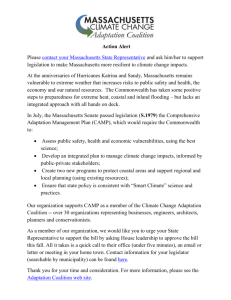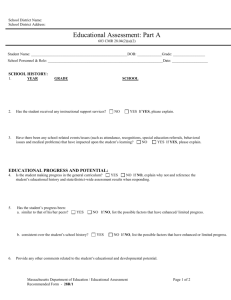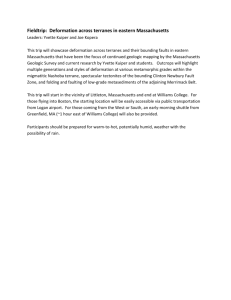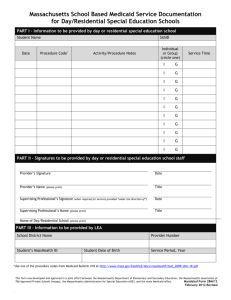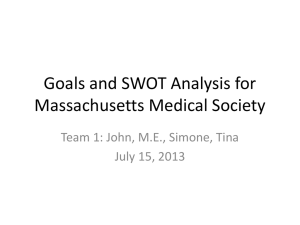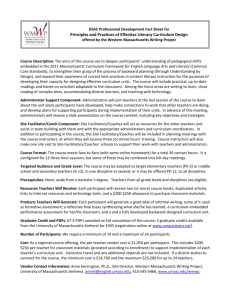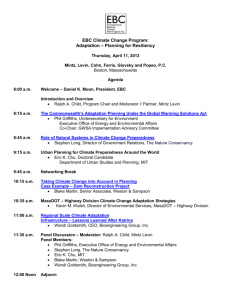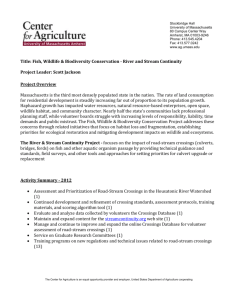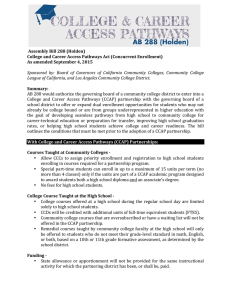Information and Resources on Stream Continuity
advertisement
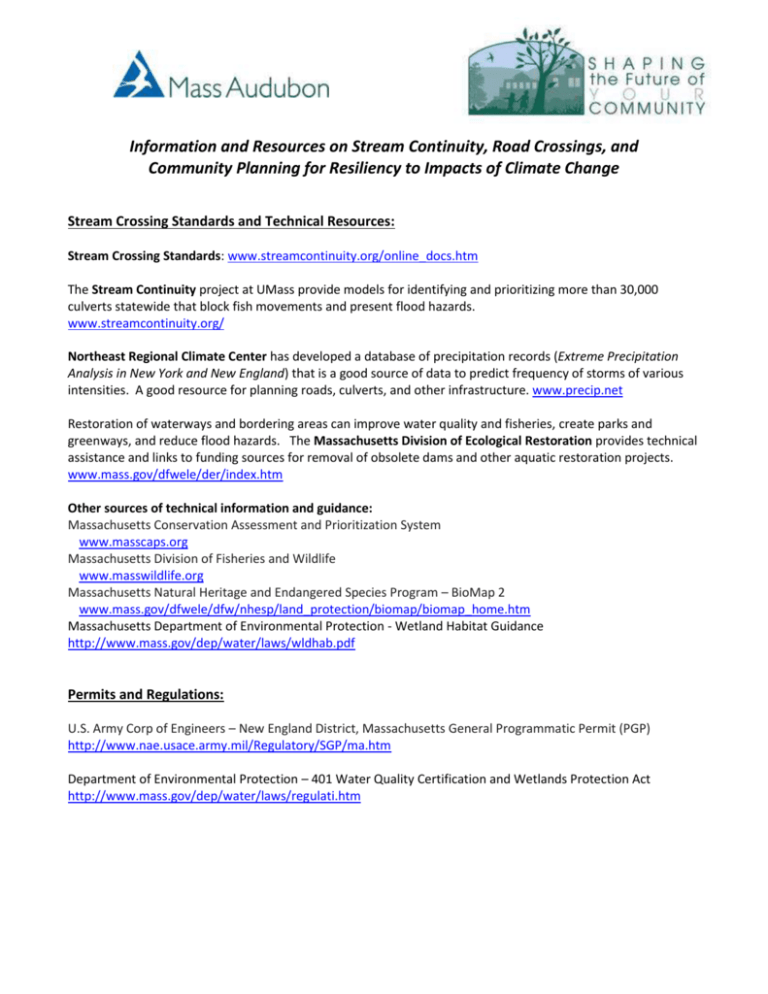
Information and Resources on Stream Continuity, Road Crossings, and Community Planning for Resiliency to Impacts of Climate Change Stream Crossing Standards and Technical Resources: Stream Crossing Standards: www.streamcontinuity.org/online_docs.htm The Stream Continuity project at UMass provide models for identifying and prioritizing more than 30,000 culverts statewide that block fish movements and present flood hazards. www.streamcontinuity.org/ Northeast Regional Climate Center has developed a database of precipitation records (Extreme Precipitation Analysis in New York and New England) that is a good source of data to predict frequency of storms of various intensities. A good resource for planning roads, culverts, and other infrastructure. www.precip.net Restoration of waterways and bordering areas can improve water quality and fisheries, create parks and greenways, and reduce flood hazards. The Massachusetts Division of Ecological Restoration provides technical assistance and links to funding sources for removal of obsolete dams and other aquatic restoration projects. www.mass.gov/dfwele/der/index.htm Other sources of technical information and guidance: Massachusetts Conservation Assessment and Prioritization System www.masscaps.org Massachusetts Division of Fisheries and Wildlife www.masswildlife.org Massachusetts Natural Heritage and Endangered Species Program – BioMap 2 www.mass.gov/dfwele/dfw/nhesp/land_protection/biomap/biomap_home.htm Massachusetts Department of Environmental Protection - Wetland Habitat Guidance http://www.mass.gov/dep/water/laws/wldhab.pdf Permits and Regulations: U.S. Army Corp of Engineers – New England District, Massachusetts General Programmatic Permit (PGP) http://www.nae.usace.army.mil/Regulatory/SGP/ma.htm Department of Environmental Protection – 401 Water Quality Certification and Wetlands Protection Act http://www.mass.gov/dep/water/laws/regulati.htm Community Planning Resources for Climate Change: EPA has many resources for community planning related to climate change. www.epa.gov/statelocalclimate/ ICLEI - Local Governments for Sustainability is an internationally recognized resource, with many member communities in Massachusetts. Changing Climate, Changing Communities: Guide and Workbook for Municipal Climate Adaptation http://www.iclei.org/ Coastal Zone Management – Stormsmart Coasts www.mass.gov/czm/stormsmart/ GRRIP - Geographic Roadway Runoff Inventory Programs -- a method to evaluate vulnerability of local infrastructure. www.srpedd.org/gripp.asp Center for Clean Air Policy (CCAP) – The Value of Green Infrastructure for Urban Climate Adaptation www.ccap.org/docs/resources/989/Green_Infrastructure_FINAL.pdf Lessons Learned on Local Climate Adaptation from the Urban Leaders Adaptation Initiative www.ccap.org/docs/resources/988/Urban_Leaders_Lessons_Learned_FINAL.pdf Water Resources and Green Infrastructure: Natural systems provide functions such as water supply, flood control, water filtration, and temperature moderation. Protection of this “Green Infrastructure” can reduce costs of “Grey Infrastructure” like water treatment systems, while also providing amenities like parks, greenways and trails. EPA has an extensive site with many resources on green infrastructure: www.epa.gov/greeninfrastructure/ Mass Audubon’s Shaping the Future of Your Community Program provides support to community leaders and citizens to assist with planning and sustainable development. For more information on upcoming workshops, links to additional resources, or to request assistance with your local efforts, see: www.massaudubon.org/shapingthefuture, or contact: Stephanie Elson, Project Director Shaping the Future of Your Community Mass Audubon 208 South Great Road Lincoln, MA 01773 selson@massaudubon.org 781-259-2146
